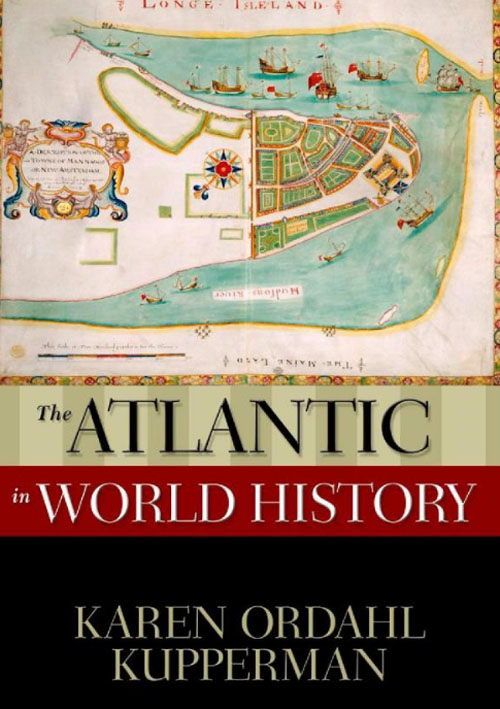The Atlantic in World History
Review

The Atlantic in World History, Karen Ordahl Kupperman, Oxford University Press, paperback, 2012, ISBN 9780195338096
This welcome addition to the innovative New Oxford World History series provides an authoritative up-to-date introduction for a wide spectrum of readers to this seminal period in world history focusing specifically upon the role of the Atlantic in the early modern period, but ranging chronologically much wider in order to offer fresh perspectives on new themes. As the general editors to the series comment in their preface, this series deliberately and explicitly seeks to break away from older approaches to world history which they contend amounted to little more than histories of the West, indeed principally of Europe and the United States, with ‘small amounts of information from the rest of the world'. It thereby conveyed the impression that ‘somehow the rest of the world was made up of exotic people who had strange customs and spoke difficult languages' or focused primarily on the ‘achievements of great civilisations' and in particular their great buildings, influential world religions and mighty rulers' rather than the experiences ‘of ordinary people or more general economic and social patterns'. This relatively slim, volume is one of eleven geographically themed volumes in the series which also includes ‘The Silk Road in History' and Trans-Saharan Africa in World History'. These are supplemented by nine chronological volumes and ten other thematic and topical volumes.
The lively text of this volume is highly stimulating and opens up exciting new perspectives on the past through an innovatory and succinct table of contents with the following chapter headings: ‘Thinking Atlantically'; ‘Atlantic Memories'; Atlantic Beginnings'; Atlantic People'; ‘Commodities: Foods, Drugs and Dyes'; ‘Eighteenth-century Realities and an epilogue entitled ‘The Atlantic'. There follows a chronology of dates from Plato's story of the lost continent of Atlantis c. 360 BCE to the independence of Brazil in 1822, currently the focus of world attention as the host of a twenty-first century global soccer competition; detailed references; a guide to further reading; a critical, brief guide to key websites and a clearly differentiated index.
Moreover the text is enhanced by a selection of carefully captioned illustrations each offering visual insights which engage and develop the empathetic understanding of readers. For example, the reader is informed that a series of images on page 95 show Africans being sold into slavery with a prospective buyer in one image examining a potential purchase, underlining the inhumanity of the commercial transaction more powerfully than in words. A related image depicts newly purchased slaves being ferried to the ship that will carry them across the Atlantic , while their friends and relatives helplessly lament their departure from the shore, emphasizing the poignancy and brutality of this disruption to the lives of ordinary people. In this way, both the text and images succeed in helping to realise the objective of the series to present ‘local histories in a global context' and provide ‘an overview of world events seen through the eyes of ordinary people'.
This expanding trans-atlantic human traffic contrasts vividly with the textual analysis of a western influx of American foods, furs, precious metals, dyes and tobacco, the latter representing the first consumer craze as prices plummeted with ever-increasing production ‘which revolutionized the lives of people everywhere' negatively as well as positively, it must be added, given the legacy of lives shattered by lung cancer. Other longer term impacts of historical developments during this period are also considered. Ironically, the book concludes that ‘ultimately, as people of African and European descent came to predominate in American populations, they broke political ties to Europe and reshaped transatlantic relationships'.

